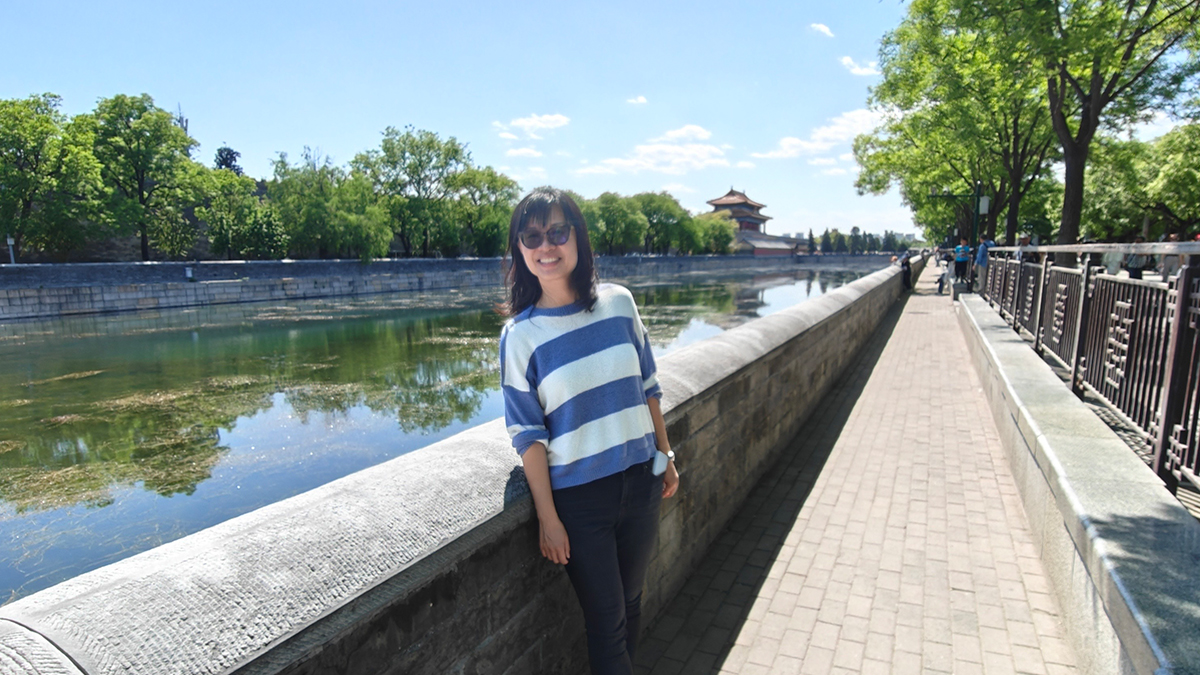
In work and her personal life, Yuan says she “brings everyone to the UNSW table”.
Dr Yuan Wang, Head of Greater China Strategic Industry Partnerships at UNSW, lives and breathes her work fostering engagement between UNSW researchers and industries in the Greater China region.
“The purpose is to help our researchers transform their research into commercial applications,” she says.
“It’s not just about great findings in labs, but helping researchers work with industry to transform their research outcomes into viable applications that can benefit society globally.
“UNSW has a lot of great researchers doing fantastic work at a laboratory scale. We help them access Chinese industries with large-scale manufacturing infrastructure capabilities so they can scale up their work.”
Yuan says her research experience and her deep understanding of industry needs and how to work with industry are reflected in her role, which she has been in for eight years since UNSW launched its Torch Innovation Precinct.
Postgrad study at UNSW
Yuan’s choice of a STEM stream in year 11 of high school led to an undergraduate chemical engineering degree. She chose to study at Tianjin University, the top university in China for chemical engineering, because her maternal grandfather was an alumnus, and her father is a petrochemical engineer in China.
While in her final year at university, Yuan met a professor with a contact at the UNESCO Centre for Membrane Science and Technology. The UNSW centre was established in 1992 when membrane technology was an emerging area.
“The UNESCO Centre for Membrane Science and Technology is a brilliant part of UNSW’s history. At the time, it was one of only four UNESCO centres in the world and it had a world-leading professor, now emeritus, Tony Fane,” she says.
“With climate change and a world-wide water shortage, I was interested in membrane separation technologies to improve wastewater treatment, water recycling and reuse processes, and my real motivation for coming to study at UNSW was the Membrane Centre and world-leading scholars such as Professor Tony Fane.”
Yuan arrived at UNSW in June 2003 and started a master’s by research degree in chemical engineering, focused on desalination using reverse osmosis systems. She continued as a PhD student, working on using computational fluid dynamics to simulate membrane bioreactors for municipal waste-water treatment and reduce energy use.
Between 2010 and 2016, Yuan was a research fellow at UNSW – in the Schools of Civil and Environmental Engineering and Chemical Engineering, when she had opportunities to work with water industries in Australia, China and European countries. She says she is grateful for great mentoring from Scienta Professor David Waite and Professor Greg Leslie – and then she was appointed Head of the UNSW Torch Innovation Precinct.
Both wife and husband now at UNSW
Yuan and her now husband, Xiaobo, attended Beijing No. 8 High School together. In 2002, while studying a master’s at Sydney University, he visited her back in China. When she arrived in Sydney the following year, they shared an apartment – and they also played tennis. Their relationship began in 2005.
“Having played tennis at university in China, it was one of the first activities I took up in Sydney. I made a lot of new friends at the UNSW Tennis Club when I first arrived. And Xiaobo and I also played at the UNSW courts [near where the Tyree Building stands].”
Yuan says she convinced Xiaobo to come to UNSW to do another master’s – in computer science and engineering.
“After that he got a job in IT support for a pharmaceutical company which he didn’t find rewarding, so I convinced him to apply for a job at UNSW. I bring everyone to the UNSW table.”
What might surprise your colleagues about you?
1. I have visited all the Australian states and territories at least twice, which is not a common thing for Australians to do.
2. I am a good volleyball player, but yet to find people to play with and a proper venue.
What is the best advice you ever received?
I have received much good advice over my 20+ years at UNSW, I’m not sure which one is the best but a special one I remember – building relationships, like having coffee catchups, is more important in the Australian workplace culture than, for example, in America or China.
What makes you happy?
Bringing new opportunities to our researchers and mentoring them along the commercialisation pathway.
What day in your life would you like to relive?
It’s too early in my life to answer that question.
What was the best thing you watched in the last year?
Professor Nick Fisk’s speech at the Torch Innovation Expo. It was brilliant!
Know someone with a good story? Email us at: insideunsw@unsw.edu.au
- Log in to post comments
